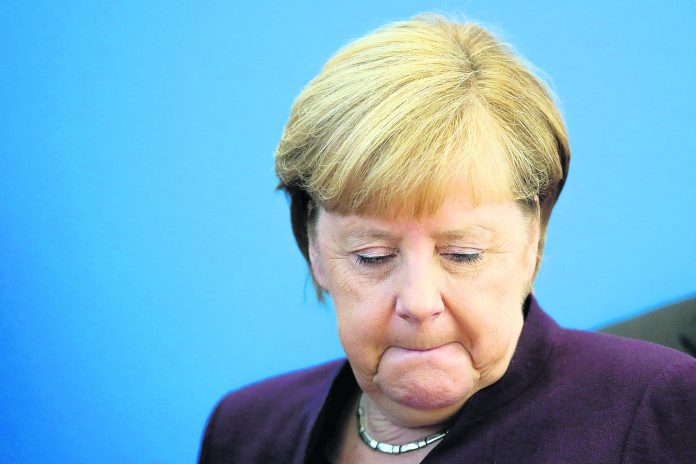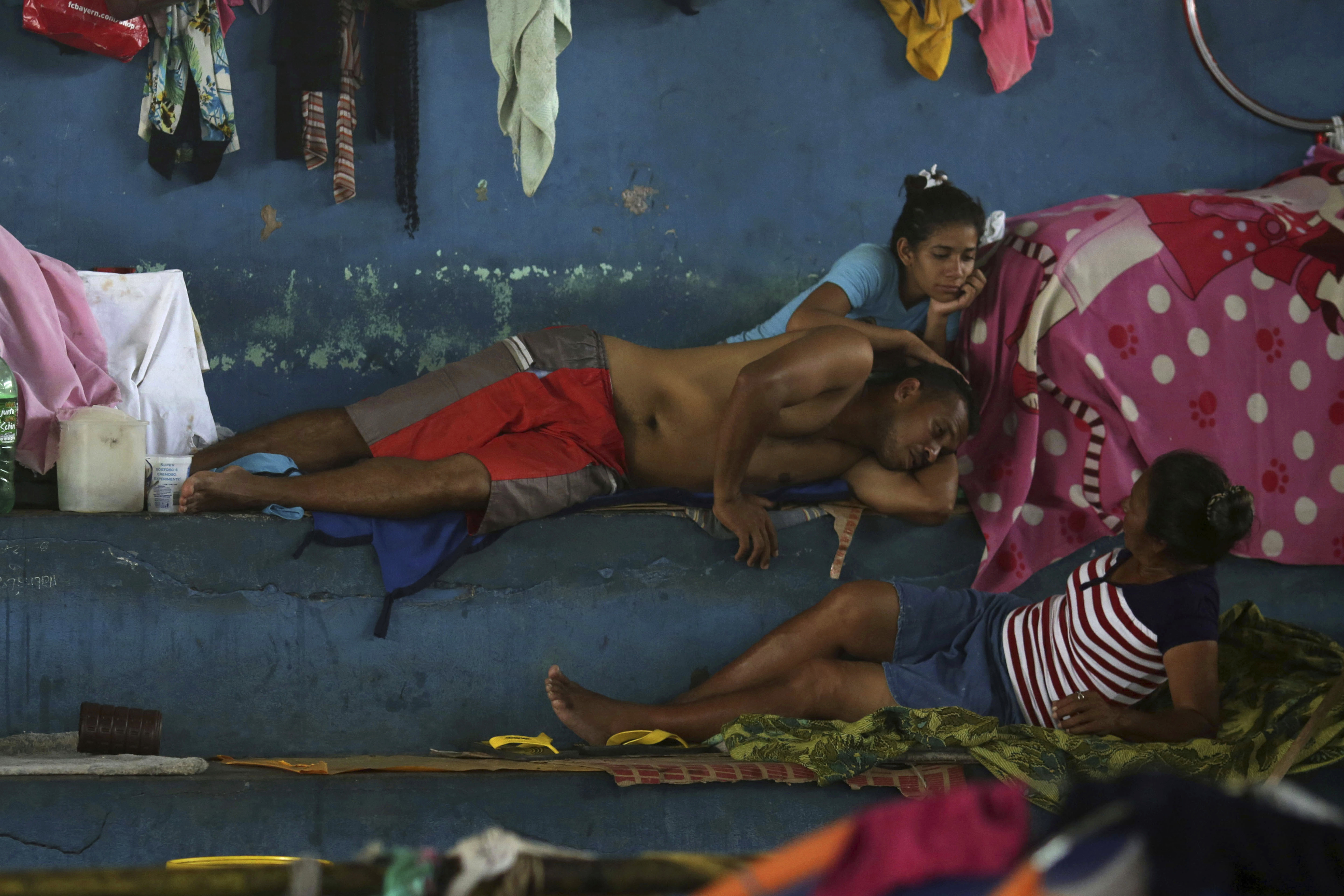
Chancellor Angela Merkel’s successor as head of Germany’s main center-right party defended her leadership on Monday after a state election in which the hard left and far-right triumphed, raising awkward questions for the traditional big parties of the center.
Merkel’s Christian Democratic Union and the center-left Social Democrats — postwar Germany’s political heavyweights and currently partners in the fractious national government — between them took only 30% of the vote in Sunday’s election in the eastern state of Thuringia.
Merkel’s party, which led Thuringia for 24 years until 2014, could only finish third behind the ex-communist Left Party and the far-right Alternative for Germany — whose regional leader, Bjoern Hoecke, has come under scrutiny from Germany’s domestic intelligence agency for his extremist views. Those two parties took more than half the vote between them.
It was the CDU’s fourth poor election performance under Annegret Kramp-Karrenbauer, Germany’s defense minister since July. She has struggled to establish her authority after narrowly winning the party leadership in December and hasn’t established herself as the party’s unquestioned choice to be the next chancellor.
Kramp-Karrenbauer acknowledged that both governing parties “are preoccupied with internal matters.” She said the head of her party’s youth branch, Tilman Kuban, questioned her position at a leadership meeting Monday.
She noted that, in the past, when the chancellor is from the CDU, they have traditionally also led the party, because otherwise “unrest” can arise. Merkel chose to step down as party leader. She has said she won’t seek a fifth term as chancellor but she does intend to serve out her current term, which is due to end in 2021.
Kramp-Karrenbauer said the situation demands that everyone in the party show “responsibility.” The CDU is currently expected to decide next year on who will run for Germany’s top job at the next election.
“I have done justice so far to my responsibility in this debate, and everyone else must decide whether they also want to do justice to this responsibility,” Kramp-Karrenbauer said. Anyone who thinks the party needs to do things differently can push for that at a regular congress next month, she said.
The Social Democrats may yet shake up the timetable. The party, whose support dropped below 10% in Sunday’s vote in Thuringia, is in the middle of a lengthy process to choose new leadership after its previous chairwoman quit in June. It is unclear whether new leaders will decide to stay in the government after they are installed in December.
Thuringia was, in some ways, a special case: Germany’s only Left Party governor, the pragmatic Bodo Ramelow, appeals to voters well beyond the traditional base of the party, which is in opposition nationally.
Sunday’s election followed the pattern of two votes in other eastern states in September: the governor’s party won at the expense of rivals in the center while large numbers of votes went to Alternative for Germany, which has benefited from many eastern Germans’ sense of still being disadvantaged nearly 30 years after reunification.
Germany’s main Jewish leader, Josef Schuster, voiced his dismay that nearly a quarter of voters backed Alternative for Germany, which he termed “anti-democratic” and which won votes with “cheap racist propaganda.”
“The excuse of a protest vote no longer works,” he said.
Along with the outcome of May’s European Parliament election and the previous state votes, Sunday’s election underlined a picture of support for traditional mainstream parties eroding.
It raised another tricky question for Kramp-Karrenbauer: how far to stick to the CDU’s line that it rules out “coalitions and similar forms of cooperation” with the Left Party, as well as Alternative for Germany. Ramelow’s left-wing coalition lost its majority Sunday, but the election produced no majority for any other currently plausible governing alliance.
Several CDU figures spoke out vehemently Monday against a coalition with the Left Party, or even loose cooperation.
Kramp-Karrenbauer said the party is sticking to its line. CDU regional leader Mike Mohring intends to talk to Ramelow, but was vague about what exactly those talks would address.q



















